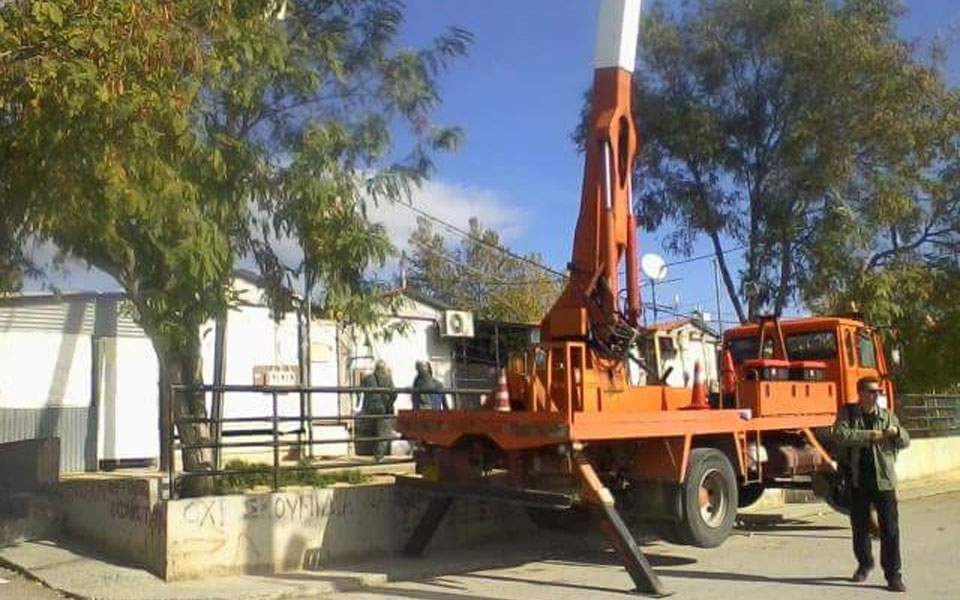Power cut at dozens of container homes in camp for 1999 quake victims

Dozens of residents at a container home camp created in 1999 for people who lost their homes in a deadly earthquake had their power cut on Thursday, in what some residents see as a bid by authorities to push out its 3,500-odd residents rather than deal with a rise in crime in the area.
A team of workers from Public Power Corporation entered the camp on Thursday morning accompanied by a platoon of riot police to cut the electricity connection to dozens of homes that it says are overdue with their bills.
The operation came after another 40 homes were cut off last year in a single swoop, according to the president of a community group at the Kapota camp in Menidi, north of Athens.
“Most of the people here cannot pay and even have to scavenge food from the trash just to survive,” Machi Sioli, who moved to Kapota in 2010 after living in another quake victim camp, told Kathimerini. “But I have bills here from neighbors showing that they have paid, yet as of today they won't have power, with everything that entails: no refrigerator for storing food and medicines, no air-conditioning and no light for when it gets dark.”
Sources at the camp claim that criminal gangs have been moving into container homes vacated by their original residents since the 2000s, yet authorities have failed to curb their activities and provide security for the camp's intended beneficiaries.
“What we need ideally is a record of residents and a rule that anyone leaving the camp needs to hand over their keys to the authorities,” one resident suggested.
The September 7 1999, 6-magnitude earthquake claimed 143 lives and destroyed hundreds of homes, mainly in poorer areas north of Athens like Menidi, Ano Liosia and Kamatero.
The Kapota camp is the last of 101 set up in the aftermath of the earthquake to house thousands of residents whose homes became unfit for habitation. It consists of an estimated 800 container homes, only a few dozen of which are still serving the needs of their intended beneficiaries.





